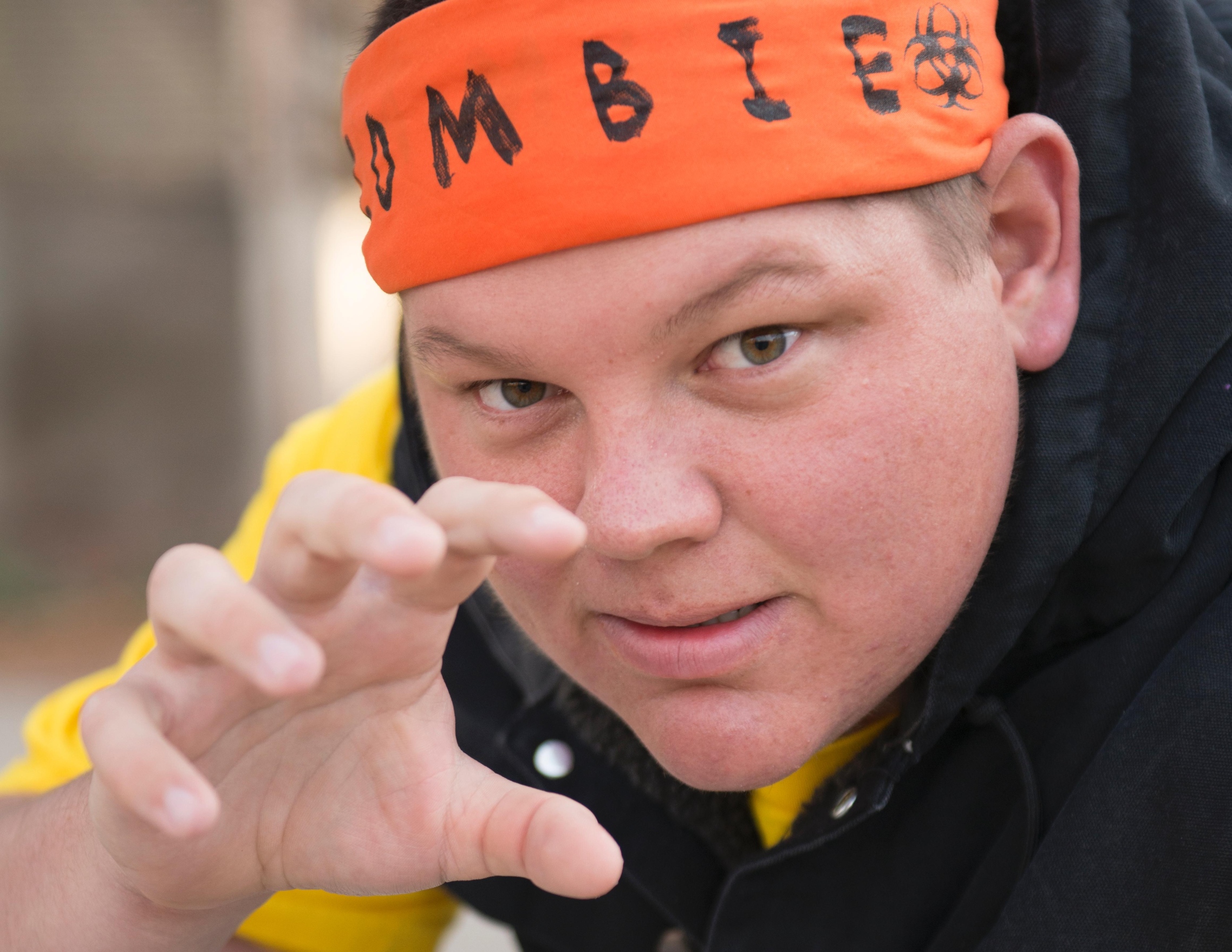Zombies return to USU
They are running all around campus. Those people with the orange arm bands? Those are the humans in the Humans vs. Zombies game at USU. Students may see people running across the campus, trying to escape the zombie apocalypse and save the rest of humanity.
This craze has spread nationally in recent years, but the original idea for it came from a few friends at Goucher College in 2005, who went on to create Gnarwhal Studios, a company specializing in the development of social gaming. Brice Colby, who was the Residence Hall Association events coordinator, brought it to USU in October 2010.
The point of the whole game depends on which team you’re on – for the humans, it’s to survive. For the zombies, it’s to “nom brains,” according to co-coordinator Tori Winslow.
“The game has three objectives,” said Coltin Grover, another co-coordinator. “One: Play hard for the side you are on. From there, we split into two branches. Humans: Defend yourself from zombies by throwing socks or using nerf blasters. Zombies: Tag all the humans.”
Many students have heard about the competition and even seen those people running around and jumping over things to keep from getting attacked by zombies. More than 200 people are participating in the USU game this year, but Grover said the game has seen anywhere from 175 to 800 participants in the past.
There are many great aspects, according to co-coordinator Fryar Ludwig.
“I love the boundaries this program breaks down,” Ludwig said. “As soon as you put on that bandana, every other player is your friend, and you’ll go to the ends of the campus to help them out. You get to break out of the daily grind and into a new experience – one that’s shared with hundreds of other students.”
Grover agreed and said his favorite part is chasing after human prey.
“As the zombie leader, it’s pretty satisfying to organize the zombies into hunting parties and watch them go and tag players,” Grover said. “I get as much joy from watching other zombies get tags as I do tagging them myself.”
The game gives USU students an opportunity to unite behind a specific goal and learn teamwork, Winslow said.
“When you play, it doesn’t matter who your friends are, what your social standing is, what grade or major you are or anything else,” Winslow said. “All that matters is that orange bandanna on your arm or on your head. Students that don’t connect to campus through traditional means have a week to be leaders and friends and champions at this school in their own way. In that way, HvZ fills a vital role on campus.”
But the annual game has faced some opposition from local law enforcement.
“From our point of view, it’s a safety issue,” said Captain Steve Milne of the USU Police Department. “As well as making sure our officers know that it’s taking place, and when and where, so when our officers get calls of someone running around being chased by somebody, they have an idea that’s it’s more part of this game than someone really in trouble. We still follow up on investigating that, but it gives the officers the heads up.”
“In the beginning, and even still now, a little bit, people who didn’t want to participate in the game were suddenly found in the middle of it, walking down the sidewalk,” Milne said. “We had an incident once were a bunch of humans were all riding on the outside of a car driving down the road. That’s a safety issue. We’ve had people who were fleeing run right into the road and almost get hit. We had a mother who came and talked to me – she was here after regular school hours, it was probably early evening – brought her kid up for a piano lesson, and her young child suddenly got caught up in this mob of people going down the hall. The mother was kind of upset. We want the kids to have a good time, we just want it to become more organized so it’s restricted to those people who want to be part of it.”
Sgt. Travis Dunn said the campus community would do better if the game was confined to a specific area.
“Getting the word out that they’re playing the game is next to impossible,” he said. “We have law enforcement officers that come visit their children from Ohio State that we have no idea that they’re even on campus, and they see somebody acting suspicious. That’s the safety issue. We don’t want anyone playing the game to get hurt. We don’t want somebody accidentally hurting someone else.”
But the organizers of the game want it to continue throughout the whole of campus. Ludwig urges everyone competing to exercise safety but not to forget the game’s original intent.
“Play the game,” Ludwig said. “Don’t get too caught up in winning that you forget to have fun – because if you’re not having fun, you’re not playing right.”

